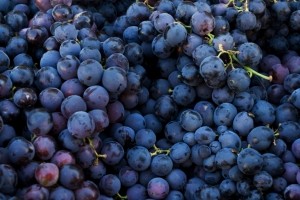The botanical roadmap to nowhere: Legal definition needed for real clarity

In the context of ongoing “further reflection and consultation,” the European Commission will launch a public and stakeholders’ consultation towards the second half of 2016.
The stated purpose of these consultations is to evaluate a) Regulation (EC) No 1924/2006 on nutrition and health claims made on food with regard to nutrient profiles and health claims made on plants and their preparations and b) the general regulatory framework for their use in foods.
According to the Commission's preparatory Evaluation and Fitness Check ROADMAP document, “[t]his evaluation will […] examine whether the current rules concerning health claims on plants and their preparations used in foods are adequate, and how the use of such claims interacts with the current applicable food regulatory framework on plants and their preparations”.
The term ’botanicals' has been frequently used in several legally binding European rules, measures and regulations– yet there is no one fixed definition of the term employed.
For instance, in the list of authorized health claims (Regulation 432/2012 of 16 May 2012), the Commission referred to “plant or herbal substances, commonly known as ‘botanical’ substances”.
More recently, the Commission provided a broader legal definition of ’botanicals’ in a footnote to point 6.1.13 of the annex to its proposal to amend Regulation (EC) No 1881/2006 with regards to maximum levels for polycyclic aromatic hydrocarbons (PAHs) in certain foodstuffs. Here the Commission defined botanicals as “e.g. whole, plant parts, fragmented or cut plants”.
According to this definition, botanical preparations are obtained from botanicals “by various processes (e.g. pressing, squeezing, extraction, fractionation, distillation, concentration, drying up and fermentation)”.
The definition of botanical preparations “includes comminuted or powdered plants, plant parts, algae, fungi, lichen, tinctures, extracts, essential oils [other than oils and fats (excluding cocoa butter) intended for direct human consumption or use as an ingredient in foods], expressed juices and processed exudates”.
May we thus conclude that, legally speaking, all ‘planticals’ are 'botanicals' and all 'botanicals' are ‘planticals’? Well… I wouldn’t bet on it. When the Commission placed health claims on botanicals on hold, it selected these claims from its consolidated list in which it had placed all the article 13.1 claims for which it sought EFSA’s advice.
The placing on hold of certain claims took place on the basis that in the conditions of use accompanying these ‘on hold’ claims, a botanical or botanical preparation was presented as causing the claimed effect.
Going through the consolidated list and comparing it with the list of claims on botanicals on hold, one wonders whether the Commission had any definition of the term botanical in mind or whether it willfully avoided applying one.
The following examples may illustrate this arbitrariness, bias and lack of definition applied by the Commission.
The claim on pomegranate juice (ID 1319) containing phenolic compounds (anthocyanins, tannines, ellagic acid), was not placed on hold because pomegranate juice was not classified as a botanical.
The claim concerning procyanidolic oligomers (OPC) extracted from grape seeds, Vitis vinifera ( ID 680), was not placed on hold. This extract was not classified as a botanical. Yet another claim on an allegedly similar grape seed extract (ID 2145) was placed on hold. This ‘standardized grape seed extract,’ was classified as a botanical.
Another claim (ID 1708) concerning epigallo-catechin-3-gallate (EGCG) / Green tea extract, rich in EGCG was placed on hold. Apparently, this green tea extract is a botanical. Meanwhile a claim made for coffee (ID 1100) was not placed on hold. Coffee is not a botanical.
A claim on fresh, frozen, canned, bottled, dried and juiced fruits (ID 1212), was not placed on hold. Fruits aren’t botanicals. Yet a claim for grapes (ID 2157) was placed on hold. Although grapes are fruits, they seem to be fruits of the botanical type, contrary to fruits of the more fruity type.
A claim on lutein (ID 3426) was not placed on hold. To the contrary, a claim on resveratrol was. Unlike lutein, resveratrol seems to be a botanical or botanical preparation.
Resveratrol is an increasingly popular ingredient in food supplements. Most – if not all – resveratrol on the market is synthetically manufactured nature-identical resveratrol. It is technically as well as economically impossible to obtain a 99% pure resveratrol preparation from a botanical substance.
So, resveratrol qualified and characterized as resveratrol (ID 1849) is not a botanical preparation.
It would be closer to the truth to classify commercially available resveratrol as a – fine – chemical (see example here).
Still, the Commission placed a cardiovascular health claim made for resveratrol on hold.
It classified resveratrol as a botanical, even though ID 1849 is unspecific regarding the way in which the resveratrol is produced – synthetically manufactured or isolated from a botanical.
For the Botanical Roadmap evaluation to succeed, the Commission must inevitably publish a legal definition of the term botanicals.
In any case, the Commission must precisely clarify, before the launch of the two consultations, what it has in mind when it uses the term botanical.
More importantly, the Commission must specify what it does not have in mind when it uses the term.
Otherwise, the public and stakeholders will be providing answers to the consultations on the basis of the botanicals they have in mind.
Their definitions, while perhaps authoritative and generally accepted, are absolutely worthless as long as the Commission uses its administrative discretion to apply bias and arbitrariness in distinguishing botanicals from botanicals in current and/or future legal frameworks designed to regulate botanicals and claims on botanicals.
The full version of Bert Schwitters' blog post can be found HERE.










